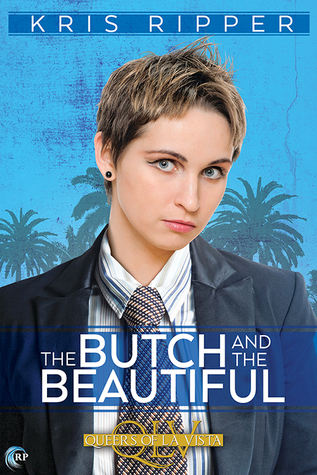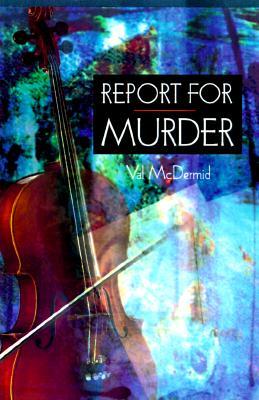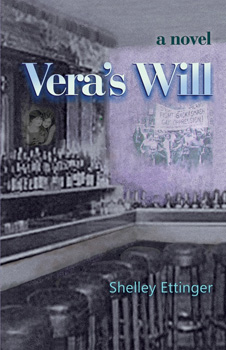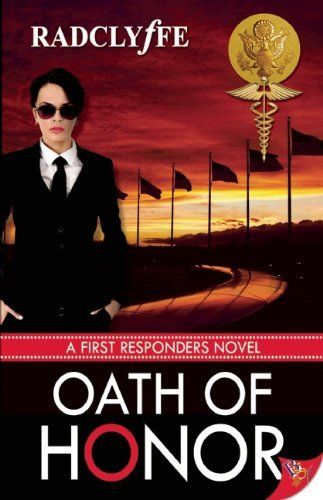Jaq meets Hannah at her ex’s wedding and is instantly smitten – despite the fact that Jaq has been forewarned that Hannah is “batshit crazy” and in the middle of a messy divorce. The two fall into bed that same night, both vowing to keep things casual… but if they had been able to keep that promise, this wouldn’t be a romance novel. Jaq is looking for commitment, but has a history of bolting when things get uncomfortable – but despite the mess in Hannah’s personal life, Jaq keeps coming back for more.
The Butch and the Beautiful is the second novel in Ripper’s Queers of La Vista Series (and the only work in the series that I have read so far). Its plot theoretically stands alone, but the novels in the series are interconnected, and main characters from one novel pop up as secondary characters in others. One of the major pluses of the series is that almost every character is queer, which is awesome.
But a downside to this structure is that the plot spills outside of the confines of the novel in ways that make it hard for the reader to follow. There are too many characters, each with too much backstory and drama, and there is just too much going on. The arc of the story feels disjointed, and many plot lines aren’t concluded in a satisfactory fashion, ostensibly to leave room for further novels. But this emphasis on other characters’ crises makes it hard to focus on the protagonist’s romance: Jaq falling for Hannah seems relatively. inconsequential in comparison.
With all these side-plots, there is little room for character development (and little room for the reader to get attached to the main characters). The novel spends a lot of time telling us about the characters, instead of showing the reader who they are: Hannah, for example, is described as “batshit crazy” without ever actually doing anything to warrant the label.
The characters also make weird offensive comments throughout the novel, that are are recognized to be offensive but dismissed and never resolved. One of Jaq’s friends makes some transmisogynistic comments that are totally gratuitous, have nothing to do with the story, and are completely shrugged off by Jaq.
Hannah and Jaq have a sweet romance, and the novel reads fluidly, for the most part. But unfortunately these positives aren’t enough to save it from its flaws. It’s a quick read – but there isn’t enough substance there to make the reader feel invested in moving forward.




